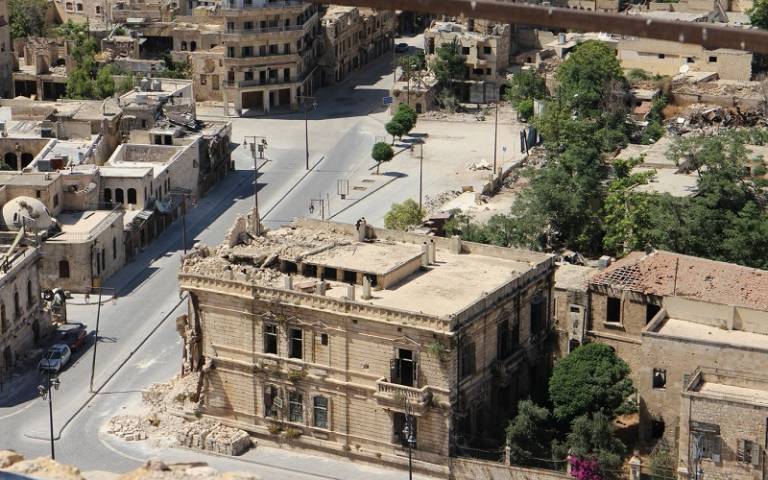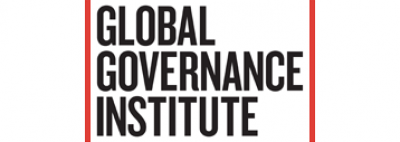Institutions in Conflicted and Fragile States
3 November 2017
Christopher Rickard (PhD Candidate at UCL Political Science) on a workshop organised by GGI Thematic Director Professor Kristin Bakke.

Over 20 experts gathered on Wednesday 25th October to take part in a workshop organised by UCL's Global Governance Institute (GGI), in collaboration with the Institute of Advanced Studies (IAS). The workshop, titled 'Institutions in Conflicted and Fragile States', brought together practitioners, policy makers, and academics.
Contrary to the common perception that conflict and instability lead to a governance vacuum, recent scholarship stresses the importance and variety of institutions in states affected by armed conflict and violence. A series of three roundtable discussions provided participants with the opportunity to discuss cutting-edge research and new ideas in the areas of property rights, governance and justice and reconciliation. Each panel was made up of four or five participants who presented their research, work or area of interest. The presentations were followed by open discussions involving all workshop attendees.
Property Rights
Academics and practitioners presented their work on the land reform programmes, property rights under authoritarian regimes and the role of property rights in past, present and future of the Syrian Crisis. Researchers demonstrated how property rights can be instrumental to governments in bolstering support, but also how they can be a source of tensions which ultimately lead to conflict. Notably, recent research of Latin America shows an increase in the gap between property and property rights before civil wars. These tensions were highlighted as a contributing factor to the escalation of the Syrian Civil War. The discussion turned to the motivations behind new property and land reforms enacted by the Assad Regime in light of the ongoing refugee crisis, and their possible implications in a post-war Syria. Indeed, the lack of clear property rights and the destruction or loss of property documentation of the millions who fled the conflict indicate that property rights will continue to be a source of tension in a post-war Syria.
Public Goods Provision and Governance
Panel two focused on the provision of public goods in non-democracies and non-state and armed actor service provision. There was a presentation on warlords in Afghanistan which centred on their enduring role in governance and their role in providing public goods. It shed light on the role powerful individuals play in state-building, and the hazy boundaries between warlords and civil servants of an evolving state. The negative contributions of police forces to civilian security in the DR Congo and the implications of state-building policies which provide training and equipment to police forces were also explored. Despite the hope that a better equipped police force will increase the security of civilians, this is often not the case. As resources are diverted to non-legal activities, it can become difficult to differentiate police forces from other armed groups. The participants discussed the objectives versus the outcomes of policies which aim to build up the capabilities of states. Finally, the attendees discussed the role of the social capital of wealthy individuals in humanitarian responses with a focus on the ongoing crisis in Yemen. The limits of a state-centred approach to crises, the importance of loyalty and linkages and how International NGOs shape the ground and actors were key take away points.
Justice and Reconciliation
After a short break, the attendees reconvened to discuss the final topic of the day; justice and reconciliation. This panel presented the work of experts on post-conflict peacebuilding and opportunities for justice after conflict. Diversity was the order of the day, as participants presented work on a wide-range of subjects, including research on perceptions of peace agreements to investigate how states re-establish themselves as credible authorities in post-war states, how social networks in Eastern Congo show the effect of fragmented civil wars, accountability and justice in post-conflict states, the role the controversial social consequences of Conflict-related Sexual Violence (CRSV), and the importance of reconciliation activities in reducing the likelihood that a peace settlement will break down. A diverse range of topics led to a stimulating discussion.
The day aptly ended with a debate on the relationship between policymaking and academia. Attendees described the different cultures of academia and policymaking, stressed the importance of evidence-based policy recommendations, research communication and how to best foster collaborative relationships between the two worlds - with a hope that workshops that bring both sides together play a crucial role in bridging the divide.
The workshop organisers, the UCL Global Governance Institute and the UCL Institute of Advanced Studies would like to thank everyone who participated in the 25 October 2017 workshop: Michael Albertus (University of Chicago), Laura Cunial (Norwegian Refugee Council), Sherine El Taraboulis-McCarthy (Overseas Development Institute), Melanie Garson (University College London), Alexandra Hartman (University College London), Martin Hetherington (Foreign & Commonwealth Office), Carlo Koos (University of Konstanz), Milli Lake (London School of Economics), Romain Malejacq (Radboud University Nijmegen), Zoe Marks (University of Edinburgh), Mareike Schomerus (Overseas Development Institute). This report does not necessarily reflect the views of all workshop participants.
 Close
Close


